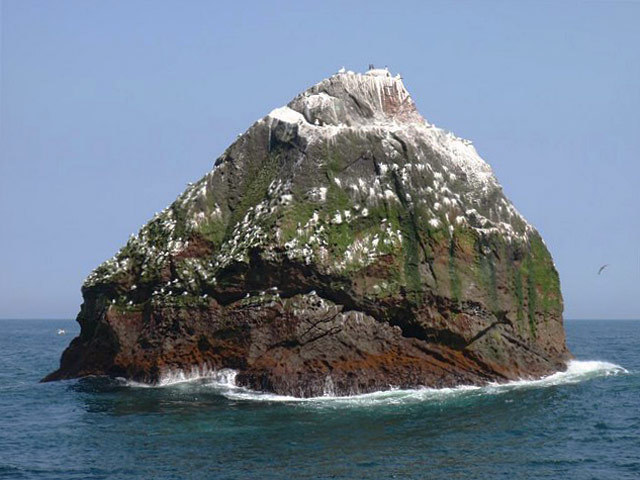
Brexit could reignite an age-old controversy over ownership of an isolated Atlantic islet off the Donegal coast.
Rockall is under 300 miles from Scotland and Ireland’s western extremities.
The pudding-shaped remnant of an extinct volcano was the subject of Irish rebel ballads and diplomatic tussles over the surrounding fisheries and oil-rich sea bed.
Its sovereignty was finally settled in Scotland’s favour in 2014 after being sparred over for decades.
Some in Ireland fear the UK’s exit from the EU could cause Britain to “pull up the drawbridge” on international use of the area.
Jane Morrice, a former European Commission representative in Northern Ireland, warned: “It could also raise the age-old controversy over ownership of Rockall which was more or less resolved between the UK and Ireland in 2014.
“The fact that the rocky outcrop in the North Atlantic is claimed by the UK as part of Scotland could make it a small but serious point in future negotiations.”
She said talks over fishing rights would involve a complicated agreement with the potential to make or break the Northern Irish fishing industry.
Eamon O’Cuiv, Fianna Fail’s island affairs spokesman from Galway in Ireland’s west, said: “In the event of a hard Brexit, there is a strong desire by many in the UK fishing industry to ’pull up the drawbridge’ and push for a ban on non-UK fishing fleets fishing in UK waters so that the currently shared fishing zone will be the UK’s and the UK’s alone.”
Ireland has never attempted to seize Rockall but it has made claims for some of the potentially lucrative sea bed around it up to 500 nautical miles from shore and known as Hatton-Rockall.
The claim has been agreed with the UK but rejected by the Faroe Islands, another territory which declared an interest in the marine outpost.
Sean O’Donoghue, CEO of the Killybegs Fishermen’s Organisation on the west coast of Co Donegal, said ownership of the actual rock would not be in dispute but Brexit would create an access issue.
“We can fish at the minute in Rockall as we have fishing rights there but when the UK leaves they will no longer be part of the Common Fisheries Policy and there will have to be some detailed discussions around the fisheries which are very difficult to resolve.
“The limits won’t be under discussion and Rockall pales into insignificance in terms of some of the other areas in terms of access to UK waters.”
The UK claimed Rockall in 1955 when a party of Royal Marines planted the Union Flag on it.
Ireland, which is 270 miles away, disputed its ownership but this was resolved in Scotland’s favour in March 2014 when exclusive economic zone (EEZ) limits were published following an investigation by the United Nations.
Scots adventurer Nick Hancock spent 43 days on the remote rock in 2014.